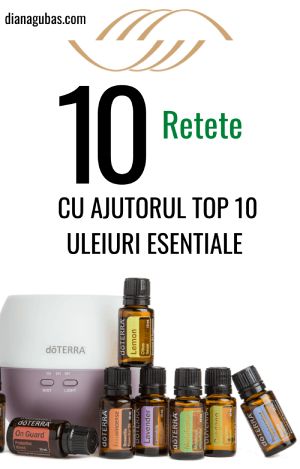M
Five Scientifically Proven Stress Management Techniques

Stress is something that each of us experiences regularly. Whether due to career, relationships, money, health or another factor, everyone experiences stress. Sadly, operating in stressed-out mode has become a norm in modern culture. Since there is no way to avoid stress entirely, the goal is to improve your ability to cope with life’s stressful events.
How Stress Affects Health
You’re driving to an important meeting when your car starts to sputter and leaves you stranded on the side of the road. Your hypothalamus, a tiny control center in your brain, perceives the pressure you feel in response and sends the order to release the stress hormones cortisol, adrenaline, and norepinephrine. These stress hormones trigger your “fight or flight” response, causing your heart to race, breathing to quicken, pupils to dilate, and muscles to prepare for action. In addition, the activity of key body systems are diminished (immune, reproductive, digestive) to emphasize life-saving activities.
This natural response is beneficial in the short-term and helps you react quickly to potentially serious situations. But when the stress response persists day after day it could decrease your overall well-being. To avoid the detrimental effects of persistent stress, here are five scientifically proven ways to management stress.
Eat Right
It goes without saying that eating right is the foundation of your overall health. Your cells need a daily infusion of nutrients to functional optimally. Certain nutrients become even more important when you experience persistent stress. These include B vitamins, magnesium, vitamin C, and omega-3 fatty acids. Your heart, lungs, and muscles require additional nutrients to sustain increased activity during stress. Because of this, B vitamins, magnesium, and vitamin C are redirected to these organs during stress, which can quickly lead to depletion of nutrient stores.
B vitamins help regulate key cellular functions. They help convert food into energy, create new blood cells, improve mood, generate healthy DNA, support healthy nervous system function, and maintain healthy body tissues. Consumption of B vitamins helps replenish lost stores and reduces stress. They are particularly important to help support healthy nervous system function, which has a direct role in responses to stress. Good levels of B vitamins can be found in leafy greens, salmon, eggs, legumes, and sunflower seeds.
Magnesium plays a widespread, critical role in the body and low levels can disrupt multiple body functions. Eating foods like dark chocolate, avocados, seeds, nuts, whole grains, and legumes can help provide a daily infusion of magnesium. One way that magnesium helps you tackle stress is by increasing GABA (gamma aminobutyric acid). GABA is a calming neurotransmitter that encourages relaxation and restful sleep. It also plays a key role in regulating the stress response. In a way, magnesium is a natural “chill pill” because of its calming effects to the brain.
Vitamin C is considered a stress buster because it helps reduce both the physical and psychological effects of stress. Consuming foods or supplements high in vitamin C—like green chili and yellow peppers, kale, broccoli, oranges, and lemons—can reduce cortisol levels and support healthy immune system activity. Emerging evidence suggests that vitamin C helps regulate the release of cortisol from the adrenal glands, making it an important vitamin to combat persistent stress.
Numerous studies prove the benefits of consuming omega-3 fatty acids, including to help manage stress. Lower intake of omega-3s are associated with higher levels of cortisol. This may be because insufficient levels of omega-3s can increase the production of proteins involved in the stress response and cortisol production itself. Both plant-based—alpha-linolenic acid (ALA) and stearidonic acid (SDA)—and marine-based—eicosapentaenoic acid (EPA) and docosahexaenoic acid (DHA)—omega-3s are regularly consumed by humans. ALA and SDA are converted to EPA and DHA in the body after consumption. Maintaining healthy omega-3 levels is important for increasing your resilience to stress.
Taking daily dōTERRA Lifelong Vitality, Pb Assist and Terrazyme, can boost your levels of these vital nutrients, balance moods and create a healthy microbiom and gut. Also the new doTerra nutrition line is amazing! This is available only if you have a USA or Canada doTerra account. For the European people, you can call at doTerra call center, and they will send the products to a USA address, and from there to you in Romania or other countries. Please contact me by chat, to explain this easy process to you, and to give you the USA address for delivery.
Be Active Every Day
Regular physical activity is a key to health and longevity. Countless studies prove that being active every day not only improves your overall health, but also improves your resilience to stress. Regular physical activity improves your ability to adapt to and cope with life’s stressful moments. Physical activity reduces stress hormone levels while simultaneously stimulating the production of feel good chemicals called endorphins. The great thing is that physical activity doesn’t have to be in a gym. You can get the recommended 150 minutes of moderate activity per week through brisk walks, working in the garden, playing with your kids, or many other ways.
Permit Yourself to Unplug
Thanks to mobile phones, the days of leaving work or school behind once you leave the building are over. Adults and teens are constantly connected to peers and colleagues, driven to keep tabs on friendships and social networking news, as well as respond to work messages. However, scientists warn that compulsively checking your smartphone may not be so smart and contributes to a rise in stress levels. Research has even shown that checking your email less frequently—three times daily instead of whenever you want—can reduce stress levels. Being “always on” may seem more productive initially, but it increases your stress and eventually causes a reduction in your performance.
Practicing digital discretion can help reduce your stress levels. Instead of immediately reaching for your phone when you wake up, spend your first waking hours exercising, meditating, or reading a self-improvement book. Consider establishing do not disturb times so you can disconnect from the constant pressure of your smartphone’s endless notifications. Live in the moment and engage in conversation with the actual people around you. By doing so, you may find you are less irritable and happier.
Set a strict technology bedtime. Unplugging from smartphones, tablets, and other sources of LED lighting is important to maintain a healthy body clock—known as your circadian rhythm. Your body is kept in tune with the rhythm of the day and night by this internal body clock that relies on light to tell time. Blue light from devices disrupts your body’s ability to tell time and can slow or prevent the production of the sleep hormone melatonin. Less melatonin means less sleep. Teens naturally have a late body clock, which means they are even more susceptible to sleep disruptions caused by devices. Aim to avoid bright screens at least two hours before bed.
Practice Mindfulness
Mindfulness involves being aware of the present without allowing your mind to drift to the concerns of the present or future. It includes purposefully bringing your attention to experiences occurring right now, while acknowledging and accepting your thoughts, feelings, and bodily sensations.
The roots of mindfulness date back centuries. It has been used to reduce stress, improve emotional discipline, increase focus, enhance intelligence and creativity, and promote greater overall well-being. The overwhelming body of evidence shows that mindfulness reduces stress and anxious feelings, while simultaneously promoting a positive mindset. The greatest benefits can be achieved when it is practiced daily. Consider diffusing Adaptiv, Arise-part of the doTerra Yoga kit, Arborvitae, or Frankincense to help establish an environment for your mindfulness practice.
Get More Sleep
Sleep is a vital, often neglected, part of your overall health. During sleep, your brain commits new information to memory, muscle growth and tissue repairs occur, hormones are created, and metabolism balanced. Despite these important functions that occur during sleep, the average person is sleeping less today partly because of stress levels and light from devices. Science proves that we need restful sleep to better manage stress. , While sleeping requirements vary from person to person, most healthy adults need between seven and nine hours per night. Children and teens need more. Diffuse your favorite calming essential oil before and during sleep to help establish a restful environment. Some to consider include Serenity, Adaptiv, and Lavander.
CONCLUSION
Following these simple, but scientifically proven, strategies can lead to improved overall well-being and reduced stress. Make a concerted effort to incorporate one or more of the above suggestions for 30 days. Hopefully by then it has become a habit and you will realize greater wellness. Don’t let stress get you down. Take back control of your well-being by managing stress each day.
If you are not sure how to start, please contact me, so we can chat and find the best products that can help you, are easy to use, and suitable for your lifestyle.
Yours truly,
Gubas Diana
